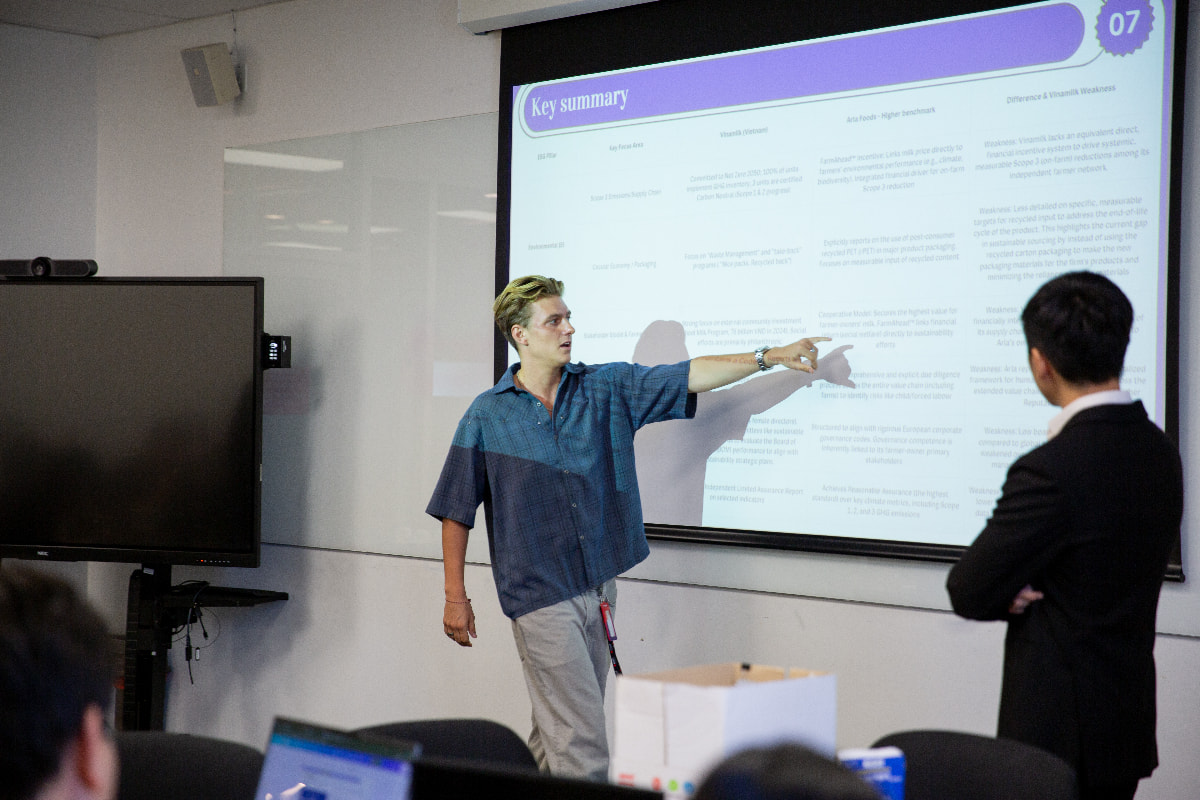Why sustainability matters in accounting
When most people think of accounting, they picture profit margins, budgets and tax returns. But today’s businesses are being judged on more than just financial performance. Regulators are tightening disclosure requirements. And customers? They’re looking for brands that share their values – on climate, equity and fairness.
When people see that a company’s actions don’t match its promises, they speak with their wallets – and businesses are starting to feel it. For Dr Samuel Buertey, these shifting expectations make accounting more important than ever – not just to keep score, but to help businesses do better.
“Sustainability accounting goes beyond the financials,” he explains. “It brings environmental, social and governance (ESG) factors into the picture – things like carbon emissions, employee wellbeing, and community impact. These aren’t just ‘nice to have’ anymore. They’re critical to a company’s long-term success.”
In short, sustainability accounting isn’t just about ticking boxes – it’s about helping businesses stay relevant, responsible and ready for what’s next.
So how do you teach someone to measure the impact of a business beyond dollars and cents?
According to Dr Buertey, it starts with broadening how students think about value – not just in financial terms, but in the impact businesses have on people and the planet.
In the classroom, students learn about sustainability principles, explore global reporting standards and frameworks, and apply their knowledge through case studies and real-world business scenarios. Guest speakers from industry join each semester to share how their organisations are navigating sustainability – from managing risk to building trust with stakeholders. Dr Buertey also weaves in his own research, which often reveals something deeper than just numbers – highlighting how social values can shape business outcomes. It’s a powerful reminder that doing the right thing isn’t just ethical – it’s strategic.
The course culminates in a major project where students take on the challenge of designing sustainability strategies for real-world companies, creating solutions that drive both accountability and long-term value.
Most importantly, Dr Buertey makes space for ethical reflection. Because sustainability often involves trade-offs, students are encouraged to think critically about the real-world dilemmas they might face – and how to approach them with integrity and balance.
These activities help ground big ideas in practical, lived experience – showing what a responsible business looks like beyond the theory.
Career-ready skills with global impact
As sustainability moves from the sidelines to the centre of business strategy, the need for professionals who can connect financial performance with social and environmental impact is growing fast. Accounting for Sustainable Management prepares students to meet that demand head-on.
Graduates of the course are equipped to support sustainable decision-making across roles in finance, consulting and governance – from helping global firms meet international standards to guiding local businesses through their first ESG strategy. As more countries adopt frameworks like the International Financial Reporting Standards (IFRS) and the Global Reporting Initiative (GRI), Dr Buertey sees sustainability accounting as a future-proof skillset – one that keeps professionals competitive, credible and ready to lead in an ever-changing world.
Shaping a new kind of accountant
Accounting for Sustainable Management isn’t just preparing students for a career – it’s preparing them to lead change. With the tools to analyse impact, the confidence to ask the tough questions, and the mindset to balance profit with purpose, graduates walk away ready to make a difference in the organisations they join.
In a world where trust, transparency and sustainability matter more than ever, this course proves that accounting isn’t just about reporting the past – it’s about helping shape the future.





